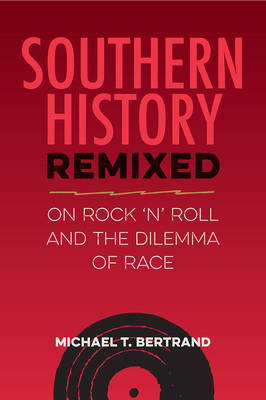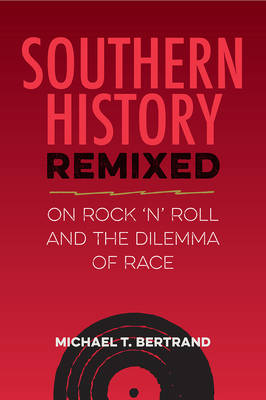
- Afhalen na 1 uur in een winkel met voorraad
- Gratis thuislevering in België vanaf € 30
- Ruim aanbod met 7 miljoen producten
- Afhalen na 1 uur in een winkel met voorraad
- Gratis thuislevering in België vanaf € 30
- Ruim aanbod met 7 miljoen producten
Omschrijving
How popular music reveals deep histories of racial tensions in southern culture
Southern History Remixed
spotlights the key role of popular music in the shaping of the United
States South from the late nineteenth century to the era of rock 'n'
roll in the 1940s, '50s, and '60s. While musical activities are often
sidelined in historical narratives of the region, Michael Bertrand shows
that they can reveal much about social history and culture change as he
connects the rise of rock 'n' roll to the civil rights movement for
racial equality.
In this book, Bertrand traces a
long-term culture war in which white southerners struggled over the
region's cultural complexion with music serving as an engine that both
sustained and challenged white supremacy. He shows how rock 'n' roll
emerged as a working-class genre with biracial sources that stoked white
racial anxieties and engaged the region's color and culture lines. This
book discusses the conflict over southern identity that played out in
responses to jazz, barn dance radio, Pentecostal and gospel music, Black
radio programming, and rhythm and blues, concluding with a close look
at the popularity of Elvis Presley within a racially segregated society.
Southern History Remixed suggests that both
Black and white southerners have used music as a tool to resist or
negotiate a rigid regional hierarchy. Urging readers and scholars to
take the study of popular music seriously, Bertrand argues that what
occurs in the music world affects and reflects what happens in politics
and history.
A volume in the series Southern Dissent, edited by Stanley Harrold and Randall M. Miller
Specificaties
Betrokkenen
- Auteur(s):
- Uitgeverij:
Inhoud
- Aantal bladzijden:
- 322
- Taal:
- Engels
- Reeks:
Eigenschappen
- Productcode (EAN):
- 9780813069890
- Verschijningsdatum:
- 30/01/2024
- Uitvoering:
- Hardcover
- Formaat:
- Genaaid
- Afmetingen:
- 156 mm x 234 mm
- Gewicht:
- 671 g

Alleen bij Standaard Boekhandel
Beoordelingen
We publiceren alleen reviews die voldoen aan de voorwaarden voor reviews. Bekijk onze voorwaarden voor reviews.











